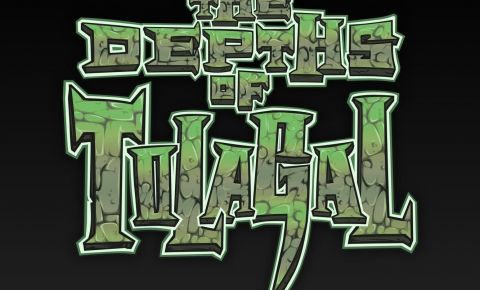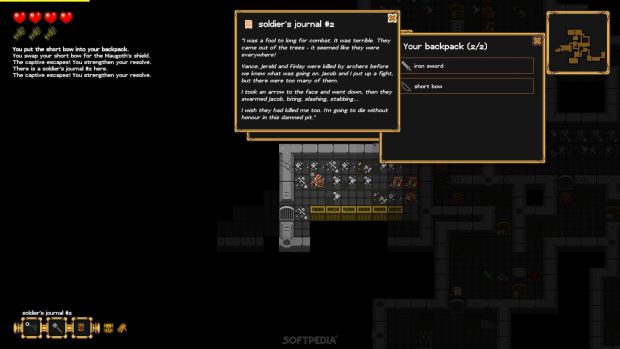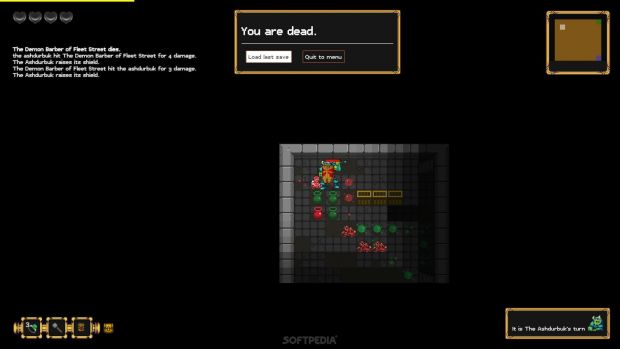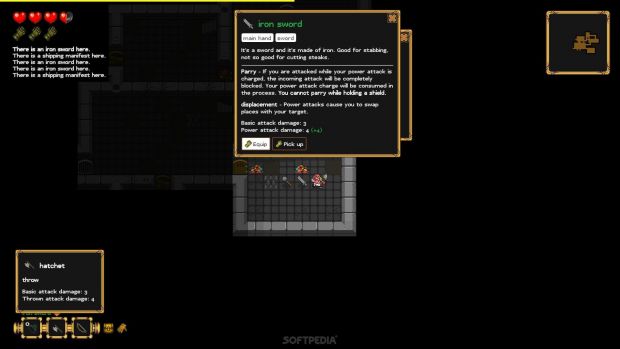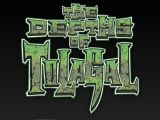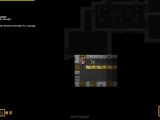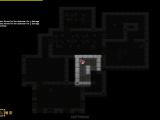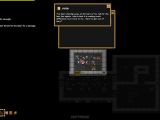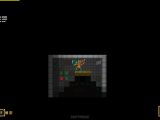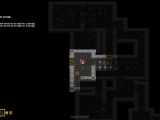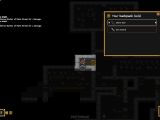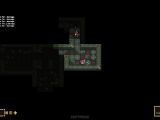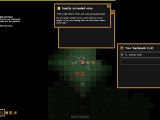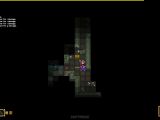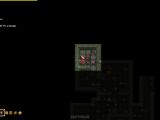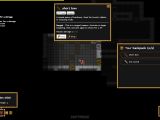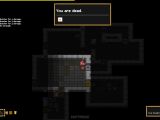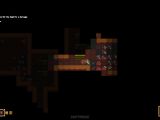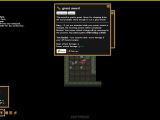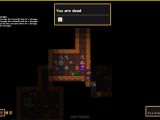The Depths of Tolagal is an indie roguelike game that attempts to deliver some new and interesting mechanics to the overcrowded genre.
Roguelikes, much like two-dimensional platformers, are about a dime a dozen, and it takes real effort to stand out from the crowd of similar titles flooding the PC gaming arena.
I absolutely detest roguelikes, especially the "hardcore" ones (I already have a bitter taste in my mouth) that rely on zero design and 100 percent luck when it comes to progressing through the game.
That being said, I love role-playing games and procedurally-generated content, and I'm always game for trying out hacking and slashing some pixelated monsters in a new release.
Gameplay
Since roguelikes have a rotten essence that basically boils down to laziness and a lack of respect for other people's time, I always begin my journey from behind an impenetrable wall of skepticism.
This is mainly because roguelike aficionados tend to think that a game that is difficult and obtuse makes you king of the world once you manage to survive for more than five minutes in it, which is plain silly.
In The Depths of Tolagal, you play as a butcher trying to find his son, who disappeared in the middle of the night without a word. Not sure whether he was kidnapped by an evil cult or he went there willingly, you grab your trusty meat cleaver and run out the door in the forest.
Presumably, you play the role of a butcher that deals in game rather than cattle and pigs, but I'm not one to wonder why he would conduct business in the woods in the first place.
Anyway, the whole thing is turn-based, and battles are deceptively tactical. In the beginning, I managed to die a copious amount of times, as I had expected, but I started to slowly decipher the game's inner workings.
You start out with a ring that gets charged as you deal damage, and which you can use for healing during your turn. This is great, since I always wondered why isn't there more healing in these kinds of games.
“The different kinds of weapons each behave in different ways, swords can completely parry the next attack when readied, just like shields offer mitigation, and axes can be thrown to deal massive damage at range.”
The way combat is handled is pretty neat, as instead of simply having one action during your turn and having to grind against an enemy until one of you falls down, each of the fiends (including you) get a certain number of action points that can be spent for movement, for attacking, casting spells, using items, or readying weapons for heavy blows.
This means that combat starts having a certain rhythm when you learn where to position yourself in order to have monsters run out of action points just when they come into your reach, and you have to juggle healing, moving out of range, and attacking, in order to get the maximum amount of efficiency out of your turn.
Shields are also handled in a unique way, as you have to spend an action point to prep them, after which they will absorb the listed amount of incoming damage from the next attacks enemies launch against you.
Mobs work in a similar manner. Most of them just charge at you and hit you for the amount of action points still available, but there are also others you have to dance around, as they fling spells, shoot arrows and raise their own shields when confronting you.
This means that unless you start getting into following the patterns, you'll find yourself dead in no time. For the most part, it's a matter of balancing attacking and healing with whatever other mechanics you have to pay attention to, such as switching to bows whenever you face ranged opponents, so you can charge your ring and heal before they whittle you down.
You can equip a utility item (healing ring, dexterity ring that gives you an extra action point), a main weapon, and an offhand that can either be a shield or a bow.
The different kinds of weapons each behave in different ways, swords can completely parry the next attack when readied, just like shields offer mitigation, and axes can be thrown to deal massive damage at range.
Some enemies will also have more intricate attack patterns, or their attacks will cause knockback, and you'll have to figure out how to approach them in the best possible way.
With these games, it's not as much about the moment-to-moment gameplay, like in traditional dungeon crawlers, where you resources aren't as limited, but more about doing some quick math and coming out on top.
I remember the crowds that used to build around my Barbarian in Diablo 2. In The Depths of Tolagal, a crowd usually means a quick death, unless you can find a chokepoint, or you make a strategic retreat, in order to get out of arrow or spell range.
This way, it becomes more of a process of calculating how much damage you can inflict, how many times you can heal, in order to figure out the correct attack pattern.
This way, failure can be pretty easily attributed to one of your bad decisions, rather than anything else in the game, which is a sort of holy mantra for roguelike fans.
Granted, this only works when the situation is balanced so you can actually win every encounter, and not entirely randomized.
Unfortunately, the kind of good thinking that made the game likeable through the depth of its tactical combat isn't reflected in how your character progresses. Every time you level up, you get two random choices that might greatly affect your performance (50 percent more health, right off the bat) or do a great deal of nothing (immunity to fire, when there is absolutely no fire around).
This completely breaks the deal for me, and turns what would have otherwise been a pleasant experience into a tedious one.
It would be nice to be able to record my progress and then have an automated tool run through the enormous amounts of runs necessary to get the random trait that I want, and then continue from that point on, instead of having to do all the work by hand only to curry favor with the random number generator gods.
Fortunately, there is the option to turn permadeath off during the campaign, so you're able to apply some trial and error without having to start all over again. There's also an infinite mode, where everything is completely randomized, and you don't get the same amount of gradual pacing you get in the regular mode.
There isn't a wealth of content to be enjoyed, and most of the game length comes from the fact that you die over and over again, and you have to revisit the same enemies and locations repeatedly.
The graphics are pretty standard 16-bit stuff, with some of the sprites looking awfully similar to other such indie games, but they're pretty crisp and do a good enough job of conveying what's going on. A bit of variety wouldn't hurt, as the levels feel pretty drab and uninteresting, just bare layouts without much in the way of immersive detail.
That however isn't all that bad, as The Depths of Tolagal is mostly about rewarding tactical combat, and less about exploring the world. There is very little to offer context right now, apart from scribbles you find scattered throughout the dungeon.
Your mission is to take a look at the screen, put every variable in the spreadsheet, calculate the best outcome, then head into the other room, rinse and repeat, until finding the stairs leading down to the next level.
Making judicious use of resources such as magical healing floor tiles and picking the right tools for each encounter, along with having the patience not to overextend, is your main mission.
The Good
- Great tactical battles
- Interesting enemy designs
- Simple but engaging
The Bad
- Bad randomization
- No classes
- Lacks variety
- Feels uninspired
Conclusion
It's not pretty or visually remarkable by any means, but it has enough personality to make it stand out from the deluge of similar titles on Steam, which is pretty much the only thing a roguelike needs in order to survive, an exciting hook.
However, all that clever combat aside, it's fairly short and barren, and it's made artificially difficult by the fact that there is no progress made in one life that helps you in the next, and that it's pretty poorly randomized, making player agency have a minimal impact on its outcome.
A wider variety of enemies, mechanics, weapons and upgrades would have made it much more appealing, but it's not too bad as it is, either.
 14 DAY TRIAL //
14 DAY TRIAL // 